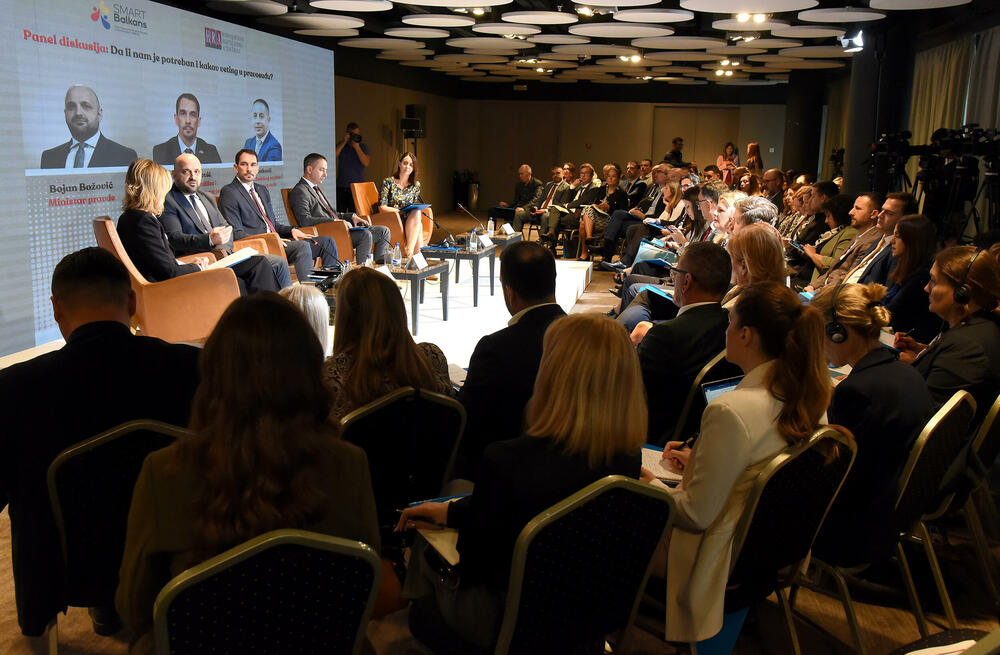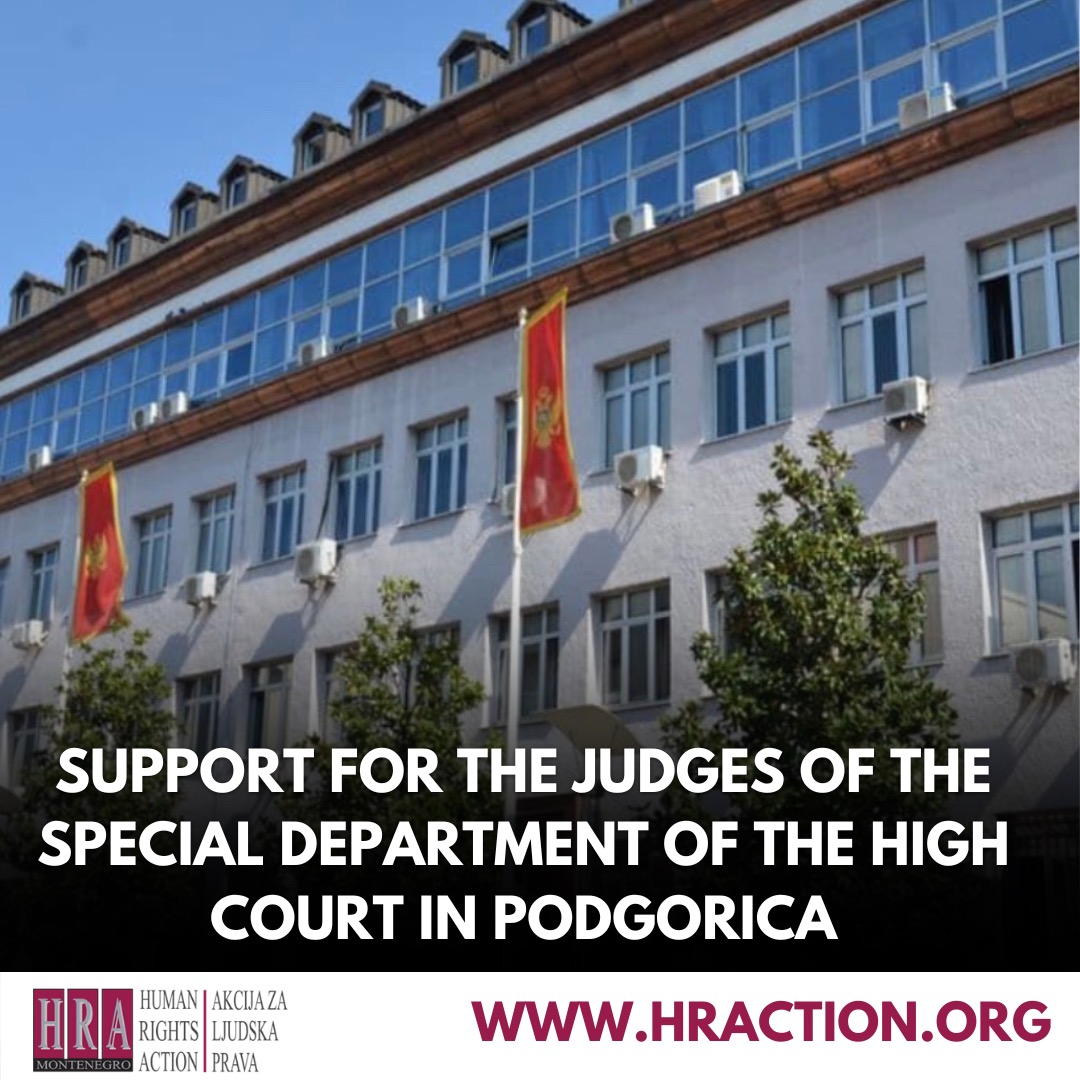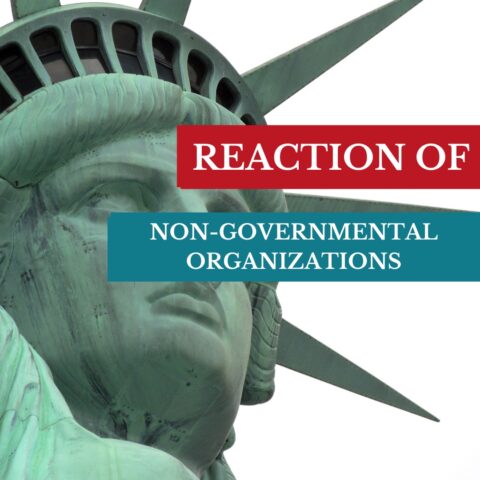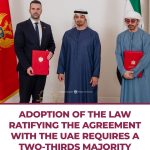
RESEARCH SHOWS THAT MOST JUDGES AND PROSECUTORS SUPPORT THE IMPLEMENTATION OF VETTING, FEW WOULD RESIGN
25/09/2024
SUPPORT FOR THE JUDGES OF THE SPECIAL DEPARTMENT OF THE HIGH COURT IN PODGORICA
12/10/2024“FOREIGN AGENTS LAW” INITIATIVE BY THE COALITION “FOR THE FUTURE OF MONTENEGRO” IS A POTENTIAL THREAT TO HUMAN RIGHTS AND MONTENEGRO’S EU INTEGRATION

The political coalition “For the Future of Montenegro” (composed of the New Serbian Democracy, led by Andrija Mandić, and the Democratic People’s Part headed by Milan Knežević), advocates for the adoption of a law that would declare multiple NGOs as “foreign agents of influence in Montenegro”, which “attempt to influence the foreign and domestic policies of our country”, “operate outside and above the law,” “spread lies and conduct a very precise campaign for the needs of foreign sponsors” and “arrogantly give moral lessons and labels to nearly all political and state institutions“. Today, the Coalition has cited the U.S. Foreign Agents Registration Act (FARA) as the model for such a law.
The obvious aim of this coalition of Serbian nationalist parties in Montenegro is to label the most vocal NGOs in the country as “foreign agents of influence” simply because they receive foreign donations, although this is not what the U.S. FARA Act stipulates. That Act applies only to organizations and individuals operating in the U.S. under foreign control and does not equate such control with merely receiving foreign donations, as the coalition seems to believe.
The establishment and operation of NGOs in Montenegro is already fully regulated by the existing Law on Non-Governmental Organizations, which is in line with European standards and the EU acquis communautaire. In addition, every NGO is obliged, under the Law on Accounting, to submit annual financial reports to the competent authorities, including the Montenegrin Tax Administration, and under the Law on the Prevention of Money Laundering and Terrorist Financing, they are required to register their “beneficial owners.” These obligations ensure transparency of operations in the NGO sector, while any deviations or violations of the law are subject to legal sanctions.
Considering that the coalition proposing such a law consists of pro-Putin politicians, it is reasonable to fear the negative effects that the adoption of foreign agent laws had in Russia, particularly on organizations that bravely fought against corruption and sought to clarify assassinations of journalists. This proposal raises serious doubts about the coalition’s declared European orientation and suggests that there may be another agenda behind the proposal—to silence the NGO sector. Such laws are typical of totalitarian systems, whereas Montenegro is striving for a democratic and European future.
Experiences from states like Russia, Hungary, Georgia, Slovakia, Turkmenistan, and Kyrgyzstan show that such foreign agent laws have been abused to stifle criticism and impose terror on organized civil society, the media, as well as individual citizens.
A common feature of these laws is that anyone receiving foreign donations and engaged in broadly defined “political activities” must register as “foreign agents,” “foreign representatives,” or “organizations serving the interests of foreign authorities.” The law applies regardless of whether donations come from public or private sources and whether organizations, informal groups, or even individuals are conducting activities on behalf of a foreign donor. These laws impose strict reporting and administrative obligations, with even the slightest violations leading to severe penalties and bans on activities.
The European Court of Human Rights, the European Court of Justice, the UN Human Rights Committee, the OSCE, and the Venice Commission of the Council of Europe have concluded that foreign agent laws violate human rights (freedom of association, expression, privacy, and the prohibition of discrimination) to the detriment of non-profit organizations, groups, and the media. The European Court of Justice has already condemned Hungary for its original version of such a law, leading to a new version now under a fresh lawsuit by the European Commission. Georgia’s EU accession process was halted due to such a law.
In May this year, under intense domestic and international pressure, the authorities of the Republika Srpska withdrew a similar law modeled on Russia’s. In Bulgaria, the pro-Putin right has also been attempting to push such a law since 2022.
Undoubtedly, the loudest NGOs, and likely countless others, are the targets of this controversial initiative, although they advocate exclusively for the swift and thorough fulfillment of EU membership criteria, which focus on the rule of law and mandatory protection of human rights. Foreign agent laws in Hungary, Slovakia, Georgia, and Russia have been used precisely against human rights, which form the foundation of the European Union. Nowhere have these laws been used to promote democracy; instead, they were designed to obscure the truth that people are leaving these countries in large numbers for Western Europe, and not China or Russia.
We praise the decisive and immediate response of all other Montenegrin parliamentary political parties for recognizing the danger behind this proposal and advocating in defense of a free and democratic society, and publicly and unequivocally withdrawing support for this proposal.
Montenegro should, through serious policy and substantial improvement in the rule of law, peace, and economic security, fight to preserve its future, which is threatened by initiatives like this, reminiscent of medieval witch hunts.
(In alphabetical order)
Association of Lawyers of Montenegro
Association for Responsible and Sustainable Development (UZOR)
Centre for Democracy and Human Rights (CEDEM)
Centre for the Development of Non-Governmental Organizations (CRNVO)
Center for Democratic Transition (CDT)
Human Rights Action (HRA)
Media Institute Montenegro (IMCG)
Women’s Rights Center (WRC)







 English
English